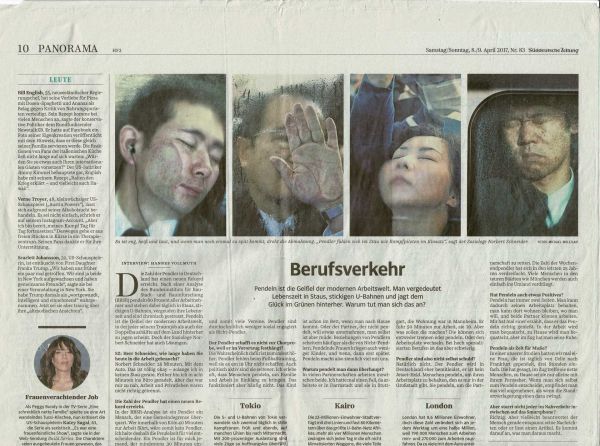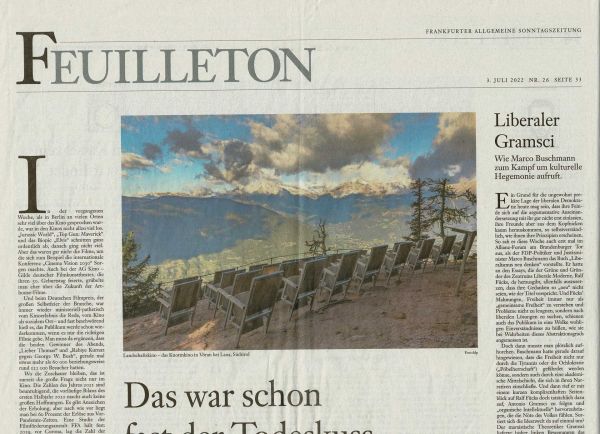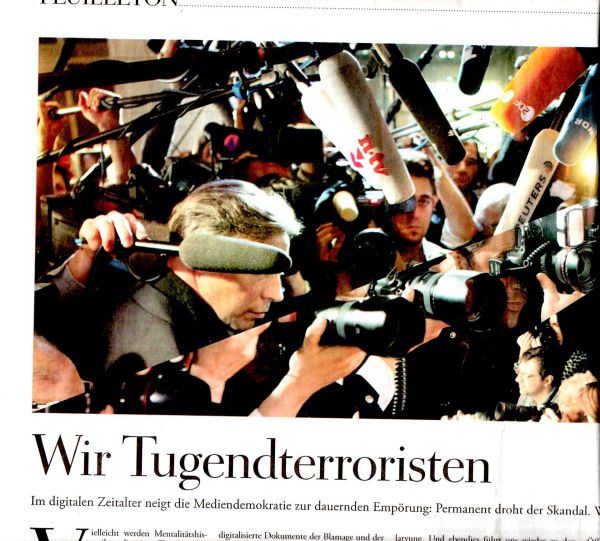German Journalistic Photography
During my college-years at Furman University, I spent an inordinate amount of time in the library. Furman has had to struggle to keep important alumni from focusing only contributions for athletic programs, and to maintain the alumni's focus on academics and the education of young people, as the University's main goal; so for years, I have earmarked my yearly contributions for the use of the library only.
I remember the kindly old ladies who ran the library, who forgave my keeping books past their due-date, and encouraged my interest in the many and varied collections. The ladies also forgave my afternoon naps on a sofa in the Bradshaw Lounge (now filled with yet more books!).
The library exposed me to newspapers from other countries; and I made up my mind that I needed to learn how to speak another language. German newspapers like Die Frankfurter Allgemeine and Die Zeit daunted me because their pages consisted almost entirely of text. Nevertheless, my tutor, a widowed Austrian disciplinarian coaxed me toward German. All alone in the world, after the death of her husband, she just needed someone to chat with in her own language; so she started speaking German to me from day-one: "Wie geht's? Setzen Sie sich! Wollen Sie etwas trinken?" The ordinary courtesies of German-speaking people receiving visitors, I had that from the start!
By the time I started reading German newspapers as a regular thing, they had started offering their readers more photos. In fact, they got pretty good at it. The enclosed photo from the Süddeutsche Zeitung, for instance, shows the travails of a Japanese commuter. For one thing, he has to make his commute as a sort of existential nightmare—faces literarlly pressed against the window!
In May of 2019, I visited Germany and looked forward to returning again after I published my new book Divide the Country!, published in March, 2020. By then of course, all Hell had broken loose, as one after another, the nations of the World closed their borders and initiated lockdowns, limiting social contact between citizens, and forbidding travel across national borders.
I did not get to return to Germany until Fall of 2021. As I stepped off the plane at Munich airport, police officers were waiting to examine the vaccination certificates of all disembarking passengers. Some of the passengers had foolishly neglected to get their certificates and had to wait for the next plane to take them back to America.
Germany needed a year at least to recover its pre-Lockdown pace. Attendance at German cinemas, for instance, started out abysmally low, like the forest-cinema (Waldkino) shown here, located in the German-speaking commune of Verano (Vöran) in northeastern Italy, situated at an altitude of 3500 feet. A hike to the forest-cinema takes at least three and a half hours. On good days, hikers take their seats to enjoy the view.
I did not become a Facebook member until Spring of 2020, after I had published my book, during the Lockdown—long after nearly everyone I knew had grown tired of Facebook. Wikipedia reports that FB has faced criticism for a gamut of offences—copyright infringement, fake news, and hate speech. Having seen the characters in Winnie the Pooh, Peanuts, or the Simpsons uttering things plainly out of line with the intentions of the artists who created them, I can understand the scope of FB's problem. Having seen the level of character assassination perpetrated by FB bloggers, FB may nave no choice but to change its ground-rules. Until that happens, the name-calling, fake-news, and other sins will continue.
This article, published in 2012 by Die Zeit shows the pressure exerted on individuals who choose to speak out, and have their lives exposed to a public that might pose a threat to them. The illustration makes a mistake, however, in assuming that the threat will come from established, reputable media organizations. The real threat will come from bloggers working in social media—who employ user-names to mask their identities, and employ tactics that the mainstream cannot.



